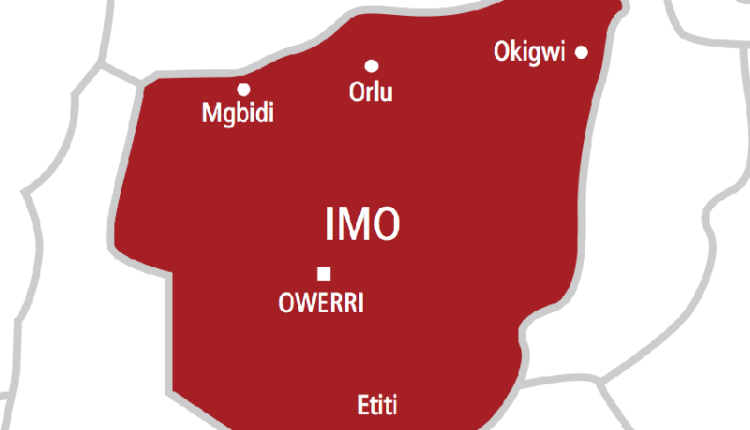HISTORY/ARCHEOLOGY: A 1,500-Year-Old Wine Factory Was Found In Israel. Experts Say It’s the Largest Known Winery From That Era – The Washington Post
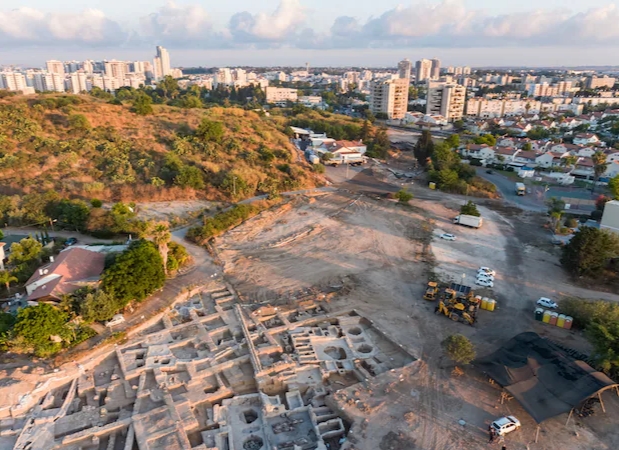
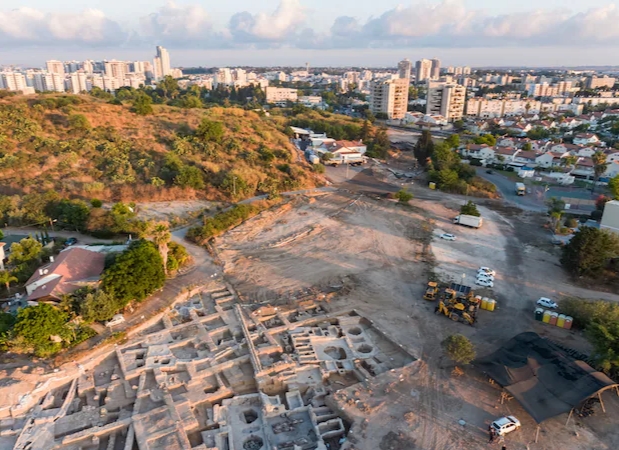
By Jaclyn Peiser
First there was the treading floor — the place where barefoot feet stomped down on grapes, forcing the juices to gush from their skins. Then there was the compartment where the sweet liquid’s sugar transformedinto alcohol. Once ready, the wine spilled into cavernous octagon-shaped pits carved into the earth.
It was then bottled and shipped out. The factory produced over a half-million gallons per year.
Archaeologists announced Monday thatthey discovered the 75,000-square-foot winery in the city of Yavne in central Israel. They have determined it is 1,500 years old.
“We were surprised to discover a sophisticated factory here, which was used to produce wine in commercial quantities,” the directors of the excavation, led by the Israel Antiquities Authority, said in a statement to The Washington Post. “We should remember that the whole process was conducted manually.”
Archaeological digs are common in Israel. Local municipalities and nonprofits often help fund the excavations, which can be a tourist draw and provide insights into life in ancient Israelicities.
The digs are also known for their fascinating finds. Last week, the Israel Antiquities Authority announced the discovery of a rare 2,700-year-old toilet in Jerusalem. In April, the IAA said itfound a 1,600-year-old multicolor mosaic in Yavne, where — two months later — archaeologists said they discovered an extremely rare, fully intact 1,000-year-old chicken egg.
An unassuming city about 15 miles south of Tel Aviv and about four miles east of the Mediterranean Sea, Yavne is known for being a haven to Jewish leaders about 2,000 years ago when the Romans destroyed Jerusalem. They formed a new place to study — in a vineyard, according to the archaeologists. Centuries later, the city grew notoriety for its prolific wine production, according to the IAA.
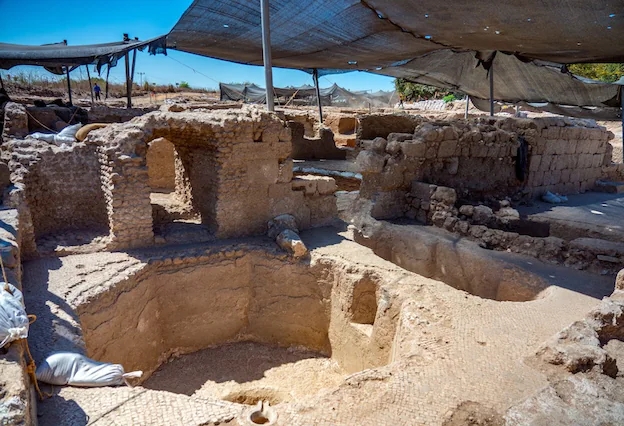
Archaeologists find rare 2,700-year-old toilet in Israel: ‘It was pretty comfortable’
Experts say the site in Yavne is the largest known wine production complex from the Byzantine period. Archaeologists found five wine presses and uncovered warehouses where the alcohol was stored and prepped for sale. The facility was well-organized for wine production, according to a news release from the IAA.
The wine presses were about 2,400 square feet and almost 10 feet deep. Between each press were four warehouses with large kilns, storage containers known as Gaza jars and thousands of pottery fragments, according to the IAA. Archaeologists also found oil lamps and children’s toysresembling small figurines.
The winery was known to produce “Gaza and Ashkelon Wine,” named for the two port cities south of Yavne. It was considered a “prestige … light white wine,” according to Jon Seligman, one of the leaders of the excavation.
“It was taken to many, many countries around the Mediterranean. We’re talking Egypt, we’re talking Turkey, Greece, maybe to southern Italy as well,” Seligman said in an IAA video about the project.
In ancient times, wine was commonly used a substitute for water, which was often contaminated, Seligman said. Even children drank wine.
“This was a major source of nutrition,” he said.
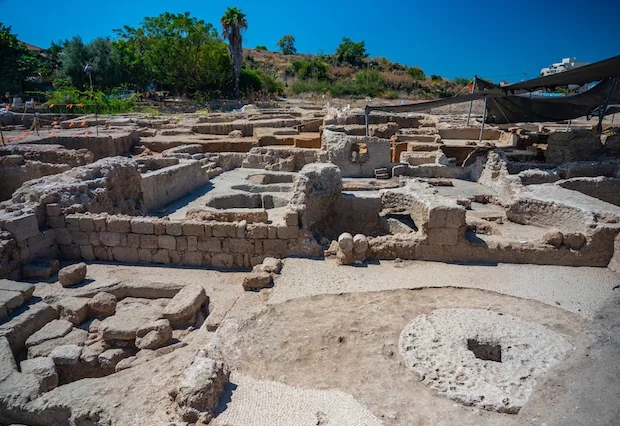
The IAA’s excavation in Yavne, which is in partnership with the Israel Land Authority’s initiative to develop the city, began two years ago.
Eli Eskozido, the director of the IAA, called the project a “mega-excavation” that hasemployed hundreds of workers and dozens of permanent staff and experts.
“Our archaeologists are doing sacred work by exposing unknown chapters of the history of the country, while working hard in the heat and cold,” he said in a statement to The Post.
Yavne Mayor Zvi Gur-Ari said he is looking forward to the site being preserved and presented as an educational tourist destination.
“The impressive findings strengthen the recognition of the importance of the city of Yavne and its glorious past throughout the periods,” Gur-Ari said in a Monday Facebook post.



